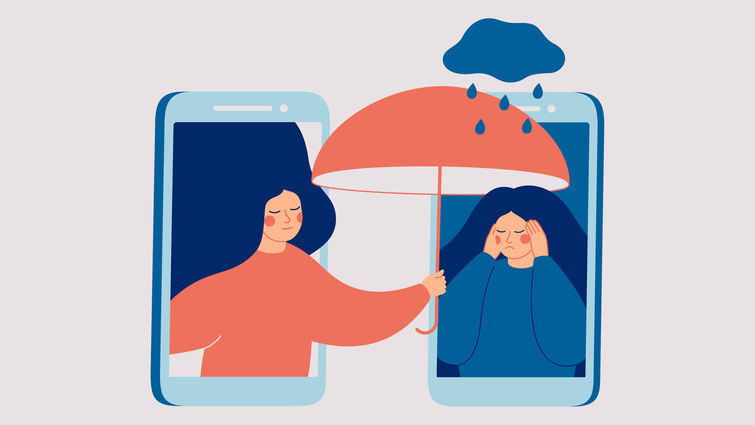
Friendships
David Puder, MD, a psychiatrist at Loma Linda University Behavioral Health (BMC), has been an advocate for building healthy relationships throughout his career. As the medical director of the MEND program at the BMC, Puder says many of his patients have reported feeling lonely, disconnected from their peers and left out.
“Friendship is vital to mental health,” he says. “Research has shown anxiety increases without close friends, and even an increased chance of dying from any cause.” Friendships are vital to a person’s overall mental health picture, both during the pandemic and before it began.
Puder shares five ways he’s seen the pandemic impact people's friendships:
- Despite the safety of meeting outside, at a distance, and with face masks, people largely have not been meeting up. Because of this, a lot of people only make friendships over social media.
- Studies show that social media is only 5% social and mostly just entertainment, and most studies show it has adverse effects on mental health.
- People are more isolated with no face-to-face connection and often don't get to see each other's faces even if they are in person. All of these factors make friendship more difficult.
- There has been a loss of connection to typical psychosocial supports, as people are no longer able to participate in normal social activities such as church, in-person classes, or game nights.
- In many cases, people have lost their jobs in the pandemic, leading to significant financial stress and increased desire for isolation.
These friendship changes have affected people's mental health, making them more prone to experience feelings of loneliness and possibly hopelessness. “Although the nation is experiencing the pandemic together, it can feel like we're in it alone because of physical distancing,” he says.
Puder says these changes have exacerbated people's weakened mental states because we normally de-stress through connection with others, and these opportunities for connection have not been taking place.
When Puder suggests what people can do if they want to connect with friends in safe ways, he says planning a time to be face to face, outside, at a decent distance is a good place to start. “Wear your masks, talk and listen, and spend time catching up,” he says. “It's especially tough to make new friends during the pandemic, so nourish the ones you have, and be patient with one another.”
Puder also recommends avoiding the temptation to step back from friendships. If you’re not getting what you need from the relationships around you, he says it’s important to express what you are feeling and ask your friends for what you need. “If you need them to simply listen or to sit in silence in person or on video, then ask for that,” he says.
If you or someone you love is experiencing suicidal thoughts, visit our behavioral health services website and learn more about how Loma Linda University Behavioral Medicine Center can help. Request information on a diagnosis or treatment or any behavioral health concerns and one of our intake coordinators will contact you.
If you or someone you know is in a life-threatening crisis now, seek help immediately. Call 1-800-273-TALK (8255) to reach a 24-hour crisis center or dial 911 for immediate assistance.
